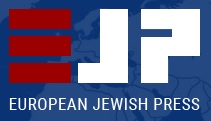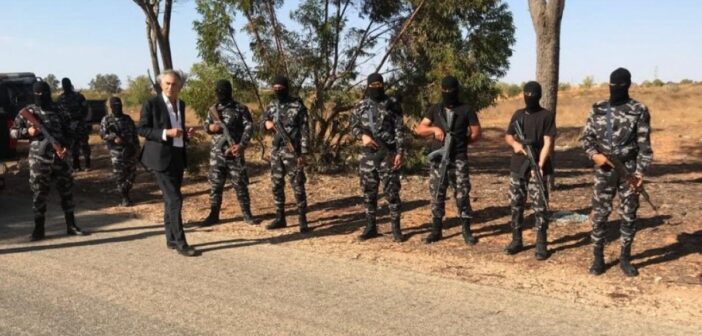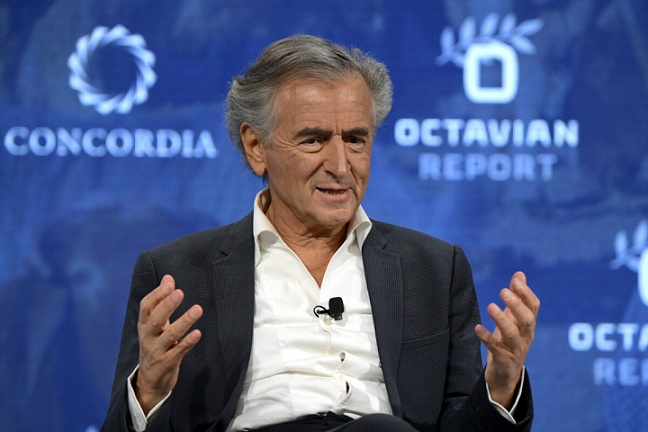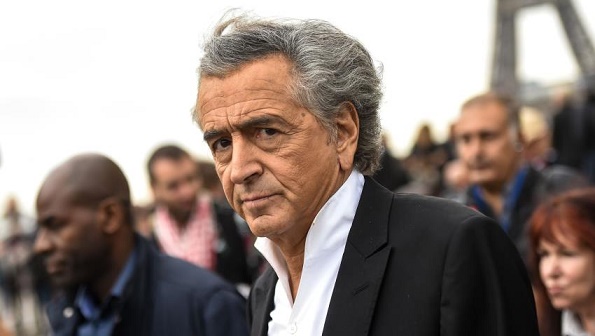French writer and philosopher Bernard-Henri Levy called ‘Jewish dog’ during reporting trip in Libya
By Yossi Lempkowicz
Bernard-Henri Levy pictured during a visit to Libya where he was doing a reporting trip to the ‘’killing fields’’ for the
Wall Street Journal.
French Jewish writer and philosopher Bernard-Henri Levy was called ‘’Jewish dog’’ during a visit to Libya where he is doing a reporting trip to the ‘’killing fields’’ for the Wall Street Journal.
According to a video posted on social media, thugs tried to block his convoy on his way from Tarhuna to Misrata. One man was heard shouting “Jewish dog.”
The Jerusalem Post also quoted a report by Anadolu, the pro-government press agency in Turkey, as highlighting the “Jewish” aspect of the trip. He was called a “controversial French Jewish intellectual” in a headline on the pro-AK Party website, which is one of the main backers of Turkey’s government.
Ankara’s regime has been escalating the conflict in Libya in recent months, shipping Syrian mercenaries recruited from refugee camps to Libya and sending drones and weapons to Tripoli.
Libya is in the middle of a civil war between the Turkish-backed government in Tripoli (GNA) and the eastern Libya-based Libyan National Army (LNA) led by Khalifa Haftar who is backed by Egypt, the UAE, Russia, Saudi Arabia and Greece.
Levy has said he wanted to visit the town of Tarhuna, where government forces have uncovered a mass grave they say contains the bodies of civilians executed by forces loyal to Haftar. The GNA has accused Haftar of war crimes, while pro-Haftar accounts accuse the GNA of being “terrorists.”
Turkish media slammed Bernard-Henri Levy for being Jewish. It noted that the Interior Minister of Tripoli had “denied reports of inviting [the]controversial French Jewish intellectual.”
‘’The way in which reports of Levy’s visit were tinged with antisemitism appears in contrast to the portrayal of the Tripoli government as the moderate “UN-backed government.” Critics of the GNA claim it is infiltrated by the Muslim Brotherhood, which is known for its antisemitism,’’ commented The Jerusalem Post.
Visit of French philosopher Bernard-Henri Lévy to Libya raises controversy
Middle East Monitor, July 27, 2020
Philosopher, Filmmaker and Activist Bernard-Henri Levy speaks onstage during the 2018 Concordia Annual
Summit - Day 1 at Grand Hyatt New York on September 24, 2018 in New York City
[Leigh Vogel/Getty Images for Concordia Summit]
Tripoli – (AFP) – French philosopher Bernard-Henri Lévy, who contributed significantly to the French decision to intervene in Libya against Muammar Gaddafi in 2011, sparked controversy after his visit to western Libya on Saturday.According to local sources, Lévy arrived on a private plane on Saturday to Misrata Airport, about 200 kilometres west of Tripoli.
The programme of the visit, which was published by Libyan mass media and could not be verified, includes meetings between Lévy and several local officials and representatives in Misrata before visiting the city of Tarhuna (west) to investigate mass graves found in the city after the departure of Haftar’s forces, the influential general in eastern Libya.
The programme also includes a meeting between Henry Lévy on Sunday with Fathi Bachagha, Minister of the Interior of the UN-recognised Government of National Accord (GNA) based in Tripoli.
Lévy said, in a brief statement to pro-GNA channel Libya Al-Ahrar, that he came to Libya as a “journalist” for a report for the Wall Street Journal.
After supporting opposition fighters in 2011, Henry Lévy became an unwanted figure for many Libyans, especially due to his call for international intervention in 2011, led by France, the UK and the US.
The opposition to his visit by a large part of public opinion in western Libya is also due to the accusations levelled by the GNA towards France regarding its support for Haftar’s attack on Tripoli, which Paris denies.
Likewise, groups loyal to the GNA confirmed on Saturday that they had prevented Lévy’s convoy from entering Tarhuna, located 65 kilometres southeast of Tripoli, and the last stronghold of Haftar in the west. However, Lévy posted a photo of himself on Twitter surrounded by dozens of armed and masked men in uniform, confirming that he was in Tarhuna.
The office of Fayez Al-Sarraj, head of the GNA, affirmed that he disavowed Lévy’s visit, and announced in a statement that he had ordered “an investigation into this visit to know all the facts and details surrounding it.”
Al-Sarraj’s office promised to “take deterrent legal measures against everyone who is convicted of being involved or complicit” in organising this visit.
The office of Fayez Al-Sarraj, head of the GNA, affirmed that he disavowed Lévy’s visit, and announced in a statement that he had ordered “an investigation into this visit to know all the facts and details surrounding it.”
Al-Sarraj’s office promised to “take deterrent legal measures against everyone who is convicted of being involved or complicit” in organising this visit.
The Wall Street Journal denies sending famed French philosopher Bernard Henri-Levy to Libya
The New Arab, 28 July, 2020
Levy tweeted his Libya report would instead be published in French magazine Paris Match [Getty]
French philosopher Bernard Henri-Levy claimed his controversial trip to Libya was for a The Wall Street Journal report.
The Wall Street Journal did not send French philosopher Bernard Henri-Levy on a reporting mission to Libya, the daily told The New Arab's Arabic-language sister site, contrary to a claim by the writer about his controversial visit to the North African country.
Levy flew into the Libya's third city of Misrata in a private jet on Saturday, and said he planned to visit Tarhuna, a town where government forces uncovered a mass grave thought to contain the bodies of civilians executed by Khalifa Haftar loyalists.
The French writer told pro-government television channel Libya Al-Ahrar that he had travelled to the country as a journalist to write a piece for The Wall Street Journal.
The Wall Street Journal, however, told The New Arab's Arabic-language service that the newspaper did not commission a Libya field report from Levy.
"The Wall Street Journal's opinion department has worked with Bernard Henry Levy in the past, but his visit to Libya is not mandated by the newspaper," Wall Street Journal spokeswoman Colleen Schwartz said in an emailed statememt.
Levy tweeted on Tuesday that his Libya report would instead be published in French magazine Paris Match on Thursday.
"You will read: 1 my pride of having returned to #Misrata; 2 my shame for the horde of antisemites who shot at my convoy; 3 how I did, until the end, my work as a writer," he tweeted.
Armed groups loyal to the Libyan government said they had prevented Levy, who is Jewish, from entering Tarhuna Saturday.
A video surfaced on Saturday showing a group of Libyan men in fatigues angrily protesting against the writer's arrival to Tarhuna.
One man could be heard referring to Levy as a "Jewish dog", with gunshots in the background.
But in tweets accompanying photographs of himself flanked by masked gunmen in military uniforms, the French celebrity philosopher said he had visited the "killing field" in Tarhuna where 47 people, including children, had "suffered martyrdom from pro-Haftar proxies"."Just after my reportage on the killing fields. These are the true Libyan police who protect free press. So different from the thugs who tried to block my convoy on my way back to Misrata," he wrote in a caption.
A programme published by Libyan media revealed that Levy planned to visit the capital Tripoli on Sunday for talks with Interior Minister Fathi Bashagha.
But the office of Prime Minister Fayez Al-Sarraj denied "any connection" to Levy's visit and said it had opened an inquiry to establish how he had visited the country and would take "deterrent measures" against its organisers.
Although Levy enjoys celebrity status in France, he is unpopular in the Arab world due to his staunch support for Israel.
|
Races? Only one Human race United We Stand, Divided We Fall |
 |
No time to waste. Act now! Tomorrow it will be too late |
|







































